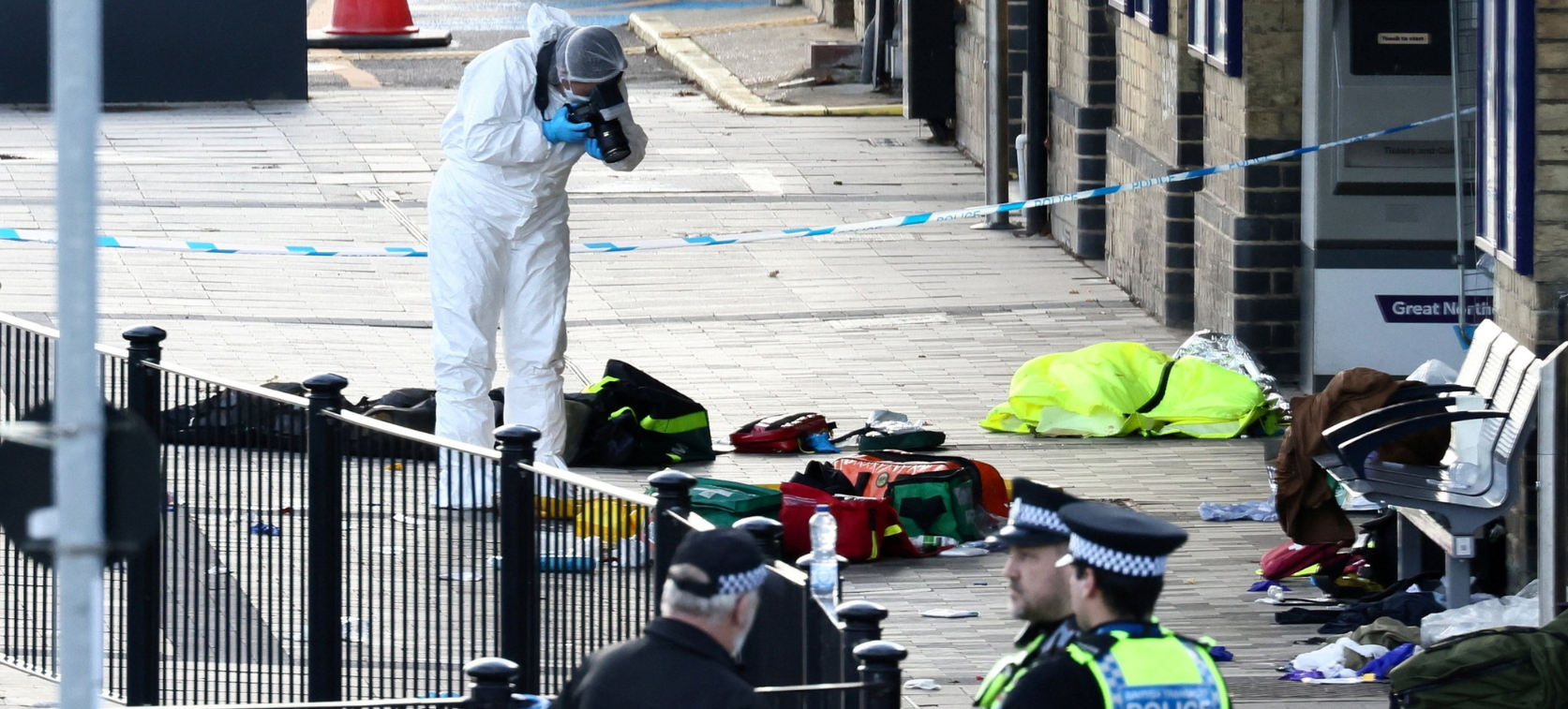When the horrific mass stabbing erupted aboard the London North Eastern Railway (LNER) service from Doncaster to King’s Cross on November 1, 2025, many were quick to brace for the familiar headlines — fear, speculation, and political point-scoring. But as the details unfolded, it became clear that this was not an imported threat, nor the result of foreign influence. It was, instead, the reflection of a society turning in on itself.
The train, forced to make an emergency stop at Huntingdon station in Cambridgeshire, became the scene of one of the most violent public attacks in recent British memory. Eleven people were injured, with nine initially reported in life-threatening condition. Among them was railway staff member Samir Zitouni, hailed for his bravery in shielding passengers and helping others to safety. Witnesses described chaos as passengers fleeing through carriages as a lone attacker, later identified as Anthony Williams, 32, stabbed indiscriminately before being restrained by bystanders and police.
British Transport Police confirmed that Williams has been charged with multiple counts of attempted murder and possession of a bladed weapon. Officials have ruled out terrorism, confirming that he was not known to counter-terrorism units and that the attack stemmed from individual instability rather than ideological motivation.
The Mirror Britain Refuses to Look Into
This tragedy has laid bare the true crisis facing Britain, and it does not come from so-called “illegal immigrants” or the Muslim community. In fact, early reports suggest that it was a Muslim worker who risked his own life to protect others. The empire’s chickens have come home to roost: a broken economic model plagued by endless U-turns on taxation, a government stripped of moral authority, and a society eroded by isolation and despair. These are the forces breeding such violence.
To be concrete:
- The UK economy recently contracted by 0.3% in April 2025, a worse-than-expected decline following tax increases and falling exports. The Guardian
- Welfare reform U-turns have erased projected savings of £5.5 billion, exposing the government’s fiscal instability. Reuters
- Socially, nearly six in ten adults report feeling lonely some, often, or all of the time, with 40% of adults aged 16–29 experiencing frequent loneliness. ONS
- The economic cost of social disconnection is estimated at £32 billion per year, highlighting the tangible consequences of fraying social bonds. Loneliness Awareness Week
These snapshots of economic contraction, policy instability, mass loneliness are not isolated. They’re symptoms of a state that has lost coherence. The U-turns in fiscal policy highlight a government unable to stick to its own narrative. The economic slowdown shows a model no longer delivering growth. And the loneliness epidemic reveals a society whose social fabric is fraying.
In such a climate, when individuals act out in violence, the instinct is often to look for external scapegoats, migrants, religious minorities, “outsiders”. But the real culprit lies at home: a system that has hollowed out public trust, weakened community bonds, and left large swathes of the population feeling disconnected and disregarded.
A Government Lost in Its Own Absurdity
Rather than confront these realities, Britain’s leaders continue to seek scapegoats for their own failures. If they could, they might start deporting Black Britons born and raised here, or perhaps strip citizenship from anyone whose skin tone doesn’t match the nostalgia of an empire long dead. That, after all, seems to be the trajectory of a political class so desperate for control it would rather turn on its own people than face its mistakes.
The satire writes itself: a government that cannot manage its economy, its public services, or its own integrity somehow believes it can manage the population by sorting citizens into categories of belonging. It’s not restoring order it’s performing collapse.
Names That Challenge the Narrative
The heroism of Samir Zitouni is a reminder of what still endures courage, decency, and shared humanity even amid the wreckage. Yet his very name, his ethnicity, and his faith are not ones the media or the political establishment instinctively align with such virtues. In a society conditioned to view names like Samir Zitouni as triggers for suspicion rather than symbols of integrity, his actions expose the cruel irony of a system that would rather vilify migrants than confront its own moral decay.
Until that deeper sickness within the political and social order is faced, the instinct to deflect blame onto the powerless, such moments of courage will remain exceptions against a backdrop of decline. The greatest danger today does not come from beyond these borders; it is the system itself unfit, unjust, and still imprisoned by the myths of its imperial past.
Need Help?
-
[email protected]
-
Follow us on Instagram
-
Follow us on TikTok
